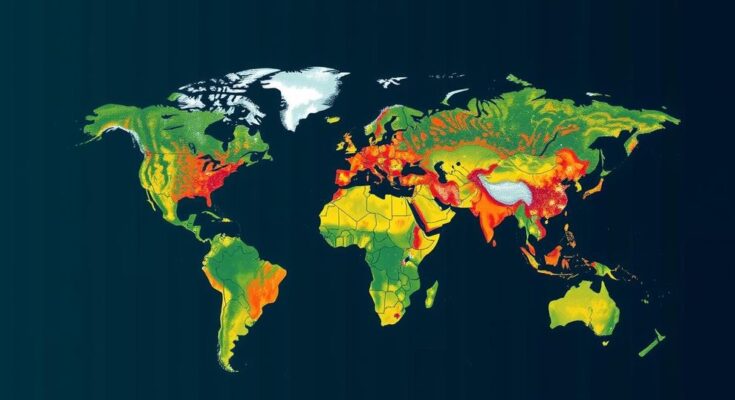The RESHAPE project, funded with £3 million, investigates the impact of climate change on global healthcare systems, focusing on resilience in countries like Malawi, Vietnam, Tanzania, and Uganda, which are increasingly subject to extreme weather events. Led by researchers from the University of East Anglia, the project aims to enhance healthcare system strategies in response to environmental challenges, ultimately seeking to establish a new standard for healthcare resilience in the face of climate change.
A groundbreaking study has commenced to assess the influence of climate change on healthcare systems worldwide, supported by a funding of £3 million under the project named RESHAPE (RESilience in HeAlth Post-Extreme weather events). This initiative, comprised of researchers and communities globally, aims to explore varied responses to the environmental challenges that disrupt healthcare provision in regions susceptible to extreme weather, particularly in Malawi, Vietnam, Tanzania, and Uganda. These countries are experiencing a rise in severe weather patterns due to climate change, ultimately threatening the delivery of essential healthcare services to millions. Dr. Brahim Herbane from De Montfort University Leicester leads the business continuity efforts for this research and underscores the imperative of enhancing healthcare system resilience. Dr. Herbane reflects on his initial field visits, which exposed him to severe disruptions in healthcare facilities during inclement weather, exemplifying the urgent need for this research to support vulnerable communities. The project seeks to identify current mitigation strategies for climate impacts on healthcare and forge new frameworks for resilience. The University of East Anglia spearheads this research in collaboration with several institutions across the globe, recognizing the pressing necessity to bolster healthcare resiliency in the context of a deteriorating climate crisis.
The research initiative under the RESHAPE project is paramount in understanding how climate change is severely impacting healthcare systems, particularly in low- and middle-income countries that frequently encounter extreme weather events. Overarching concerns stem from the inadequacies of healthcare facilities when faced with natural disasters, requiring a proactive approach towards establishing resilient healthcare practices. The study intends to delve into the mechanisms currently employed by healthcare systems to confront and recover from climate-induced disasters, thereby providing insights and recommendations for strengthening healthcare resilience. The collaborative international effort highlights the necessity of comprehensive strategies to navigate the growing challenges posed by climate change to public health.
In summary, the RESHAPE project represents a critical examination of the intersection of climate change and healthcare system resilience. With £3 million in funding, this collaborative effort aims to investigate and address the challenges faced by healthcare providers in regions heavily impacted by climate change. As researchers engage with communities in various countries, the project’s ultimate goal is to devise effective strategies to protect healthcare systems from the repercussions of extreme weather, providing essential support to vulnerable populations in an era of escalating climate challenges.
Original Source: www.dmu.ac.uk




